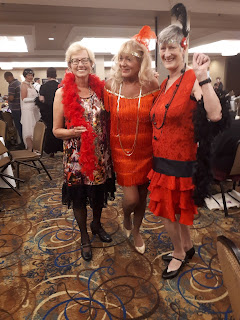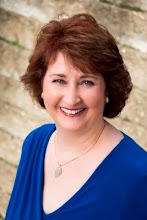Please click this link for author, book and purchase information
When I'm not on a panel, I'll be cruising the WWC program for other panels, presentations and activities to attend. There will be up to five choices every hour from 1:00 pm Friday, August 14th, to 5:00 pm Sunday, August 16th. A number have already caught my eye:
Meet the Mesdames of Mayhem: Fresh from their award-nominated CBC Gem documentary, meet the writers with a century of combined killing time and learn how they freshen up their crime sprees for the 21st century (Sat, 2:00 pm).
Medical Errors and Tropes: A bullet in the shoulder that doesn't hit anything important? Knock-outs without actual damage? Induced comas? What is realistic and what is not? A discussion of common medical mistakes and questions in fiction (Sat, 3:00 pm).
Plus a couple of panels on editing, which I'm in the midst of doing now for my novel-in-progress. In addition, I've requested a one-on-one Zoom meeting about developing my social media strategy.
Two fellow BWL authors will also be involved this year.
Nancy M Bell: Blue Pencil Café
Pitch Sessions
Editors: When Can They Help and How? (Sat 12:00:00 pm)
The Dos and Don’ts of Successful Pitching, (Sun 3:00:00 pm)
David Poulsen: Crime Thru Time (Sat 4:00:00 pm)
From the Mean Streets to the Deadly Wilderness (Sun 1:00:00 pm)
At last year's WWC festival, David and I participated in a fun panel with two other Calgary area crime writers. For a (virtual) taste of what you'll get this weekend, you can listen to the podcast of High Crimes in Your Own Backyard.
Every August for the past nine years, I've attended Calgary's When Words Collide Festival for Readers and Writers. I've loved the festival's energy, learned about the writing craft and book promotion, and acquired new readers and writing connections. When this year's in-person event was cancelled due to COVID-19, the organizers decided to go online. The festival happens this weekend. It's free and open to everyone.
I wasn't sure I'd get involved with the online version of WWC until I saw the first draft of the 3-day program. The organizers invited past presenters to fill vacant spaces on the proposed panels. Several topics grabbed my interest and I was given spots on these two panels:
Ten Things I Wish I’d Known
When you started writing, what
assumptions blocked your progress, lead you down dead ends, or limited your
opportunities and experiences? Panelists share their initial faulty thoughts
that slowed their journey into the writing world.
After almost 30 years of writing, I wish I knew a few more things and hope to learn them from my fellow panelists. I'm familiar with all three from past WWC festivals and they've achieved success in their widely-varied directions. Our panel will take place on Zoom, Friday, August 14, 3:00 pm. All you need to do to attend is go to the WWC website and click on the event link in the program PDF. No registration or payment required.
 |
| Me (right hand side) on a panel at last year's WWC |
My second Zoom appearance will be on Saturday, 1:00 pm, Access Denied: A
panel for writers on how to handle rejections and critiques, and communicate
with editors/agents/publishers,
The agent on this panel will have a lot to share. I've become an expert on this subject during the past 30 years -- but I'm still standing!
When I'm not on a panel, I'll be cruising the WWC program for other panels, presentations and activities to attend. There will be up to five choices every hour from 1:00 pm Friday, August 14th, to 5:00 pm Sunday, August 16th. A number have already caught my eye:
Meet the Mesdames of Mayhem: Fresh from their award-nominated CBC Gem documentary, meet the writers with a century of combined killing time and learn how they freshen up their crime sprees for the 21st century (Sat, 2:00 pm).
Medical Errors and Tropes: A bullet in the shoulder that doesn't hit anything important? Knock-outs without actual damage? Induced comas? What is realistic and what is not? A discussion of common medical mistakes and questions in fiction (Sat, 3:00 pm).
Plus a couple of panels on editing, which I'm in the midst of doing now for my novel-in-progress. In addition, I've requested a one-on-one Zoom meeting about developing my social media strategy.
Two fellow BWL authors will also be involved this year.
Nancy M Bell: Blue Pencil Café
Pitch Sessions
Editors: When Can They Help and How? (Sat 12:00:00 pm)
The Dos and Don’ts of Successful Pitching, (Sun 3:00:00 pm)
David Poulsen: Crime Thru Time (Sat 4:00:00 pm)
From the Mean Streets to the Deadly Wilderness (Sun 1:00:00 pm)
At last year's WWC festival, David and I participated in a fun panel with two other Calgary area crime writers. For a (virtual) taste of what you'll get this weekend, you can listen to the podcast of High Crimes in Your Own Backyard.
 |
| Partying at a previous When Words Collide festival. This year, WWC is hosting a Virtual Pool Party |



























